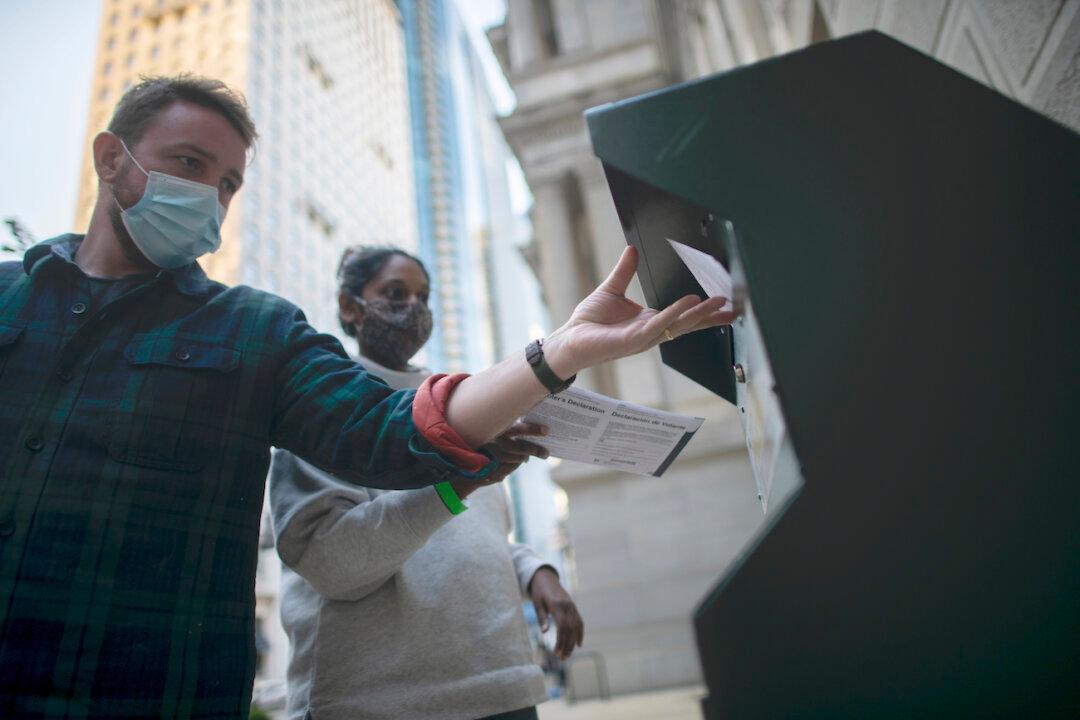The U.S. Supreme Court on Oct. 19 allowed Pennsylvania to keep in place an extended deadline for mail-in ballots.
The justices were divided 4–4 over a bid by state Republicans to overturn a ruling by the Pennsylvania Supreme Court that had allowed mail-in ballots to be received and counted until Nov. 6—three days after the Nov. 3 election even if they don’t have a postmark.




